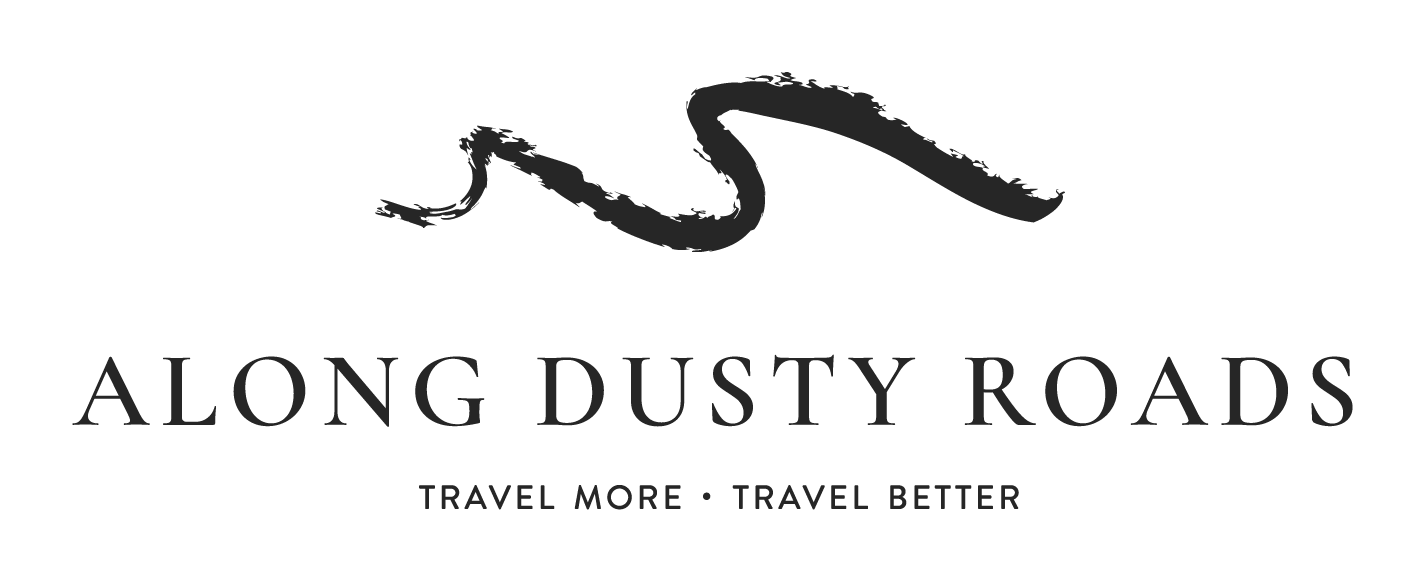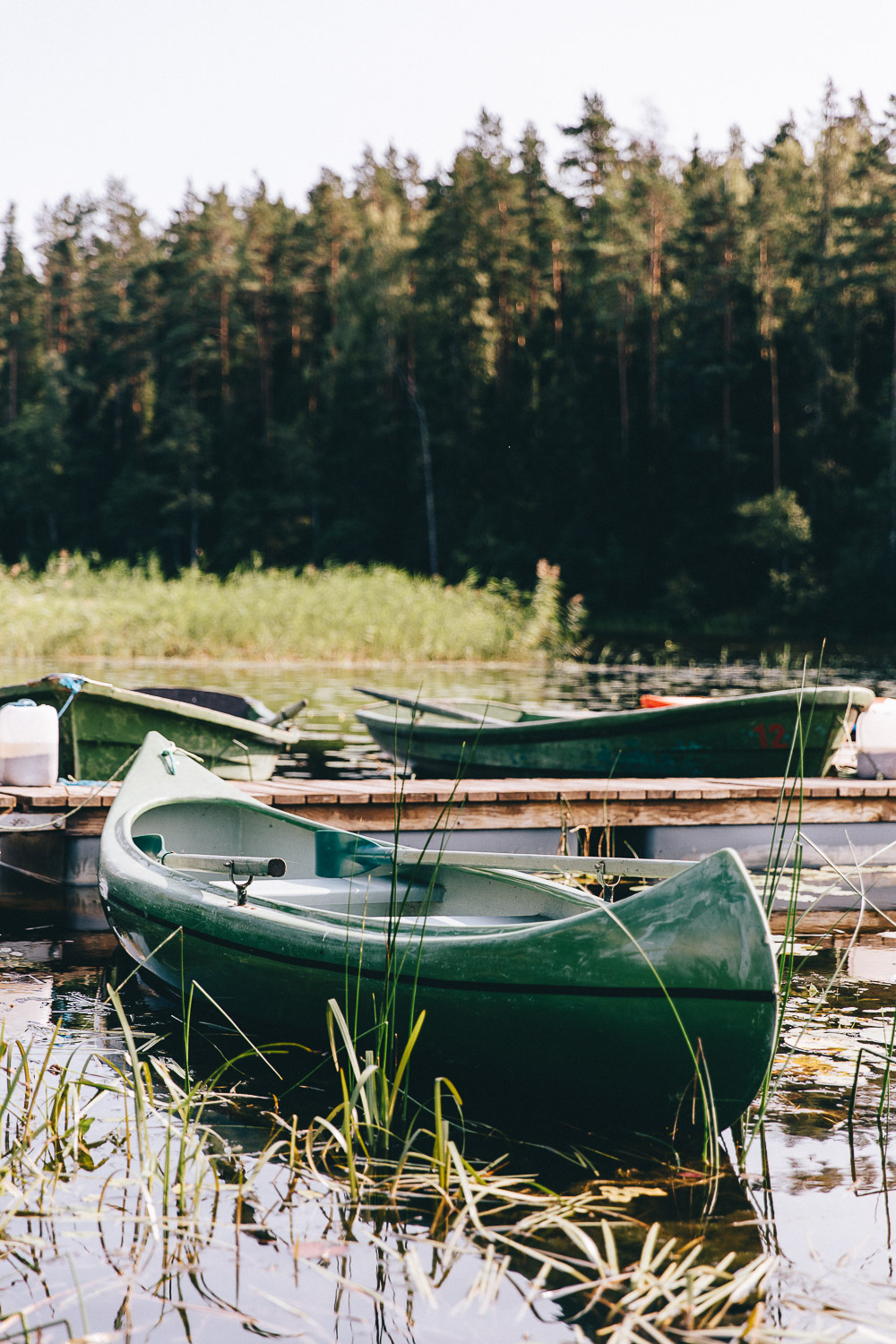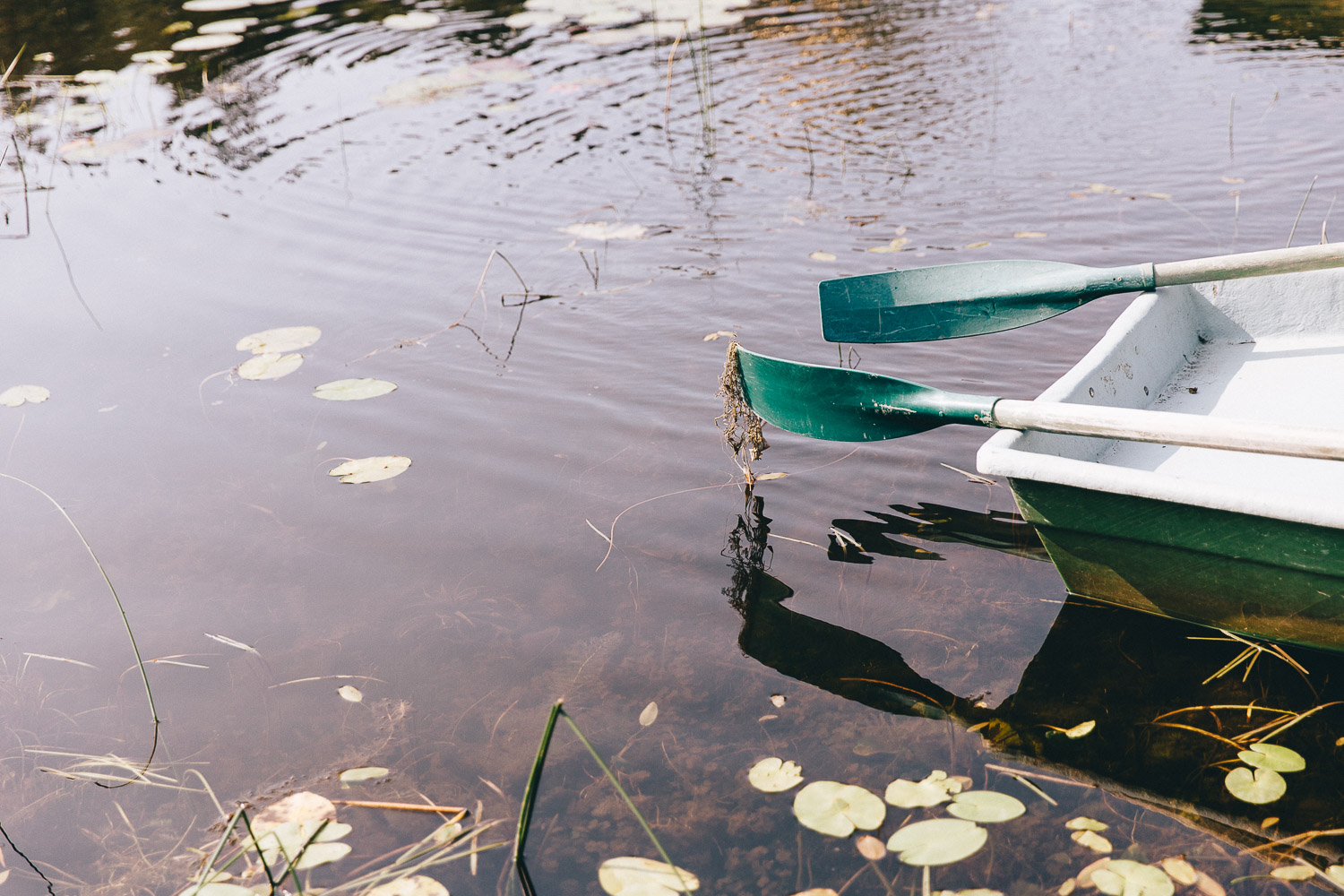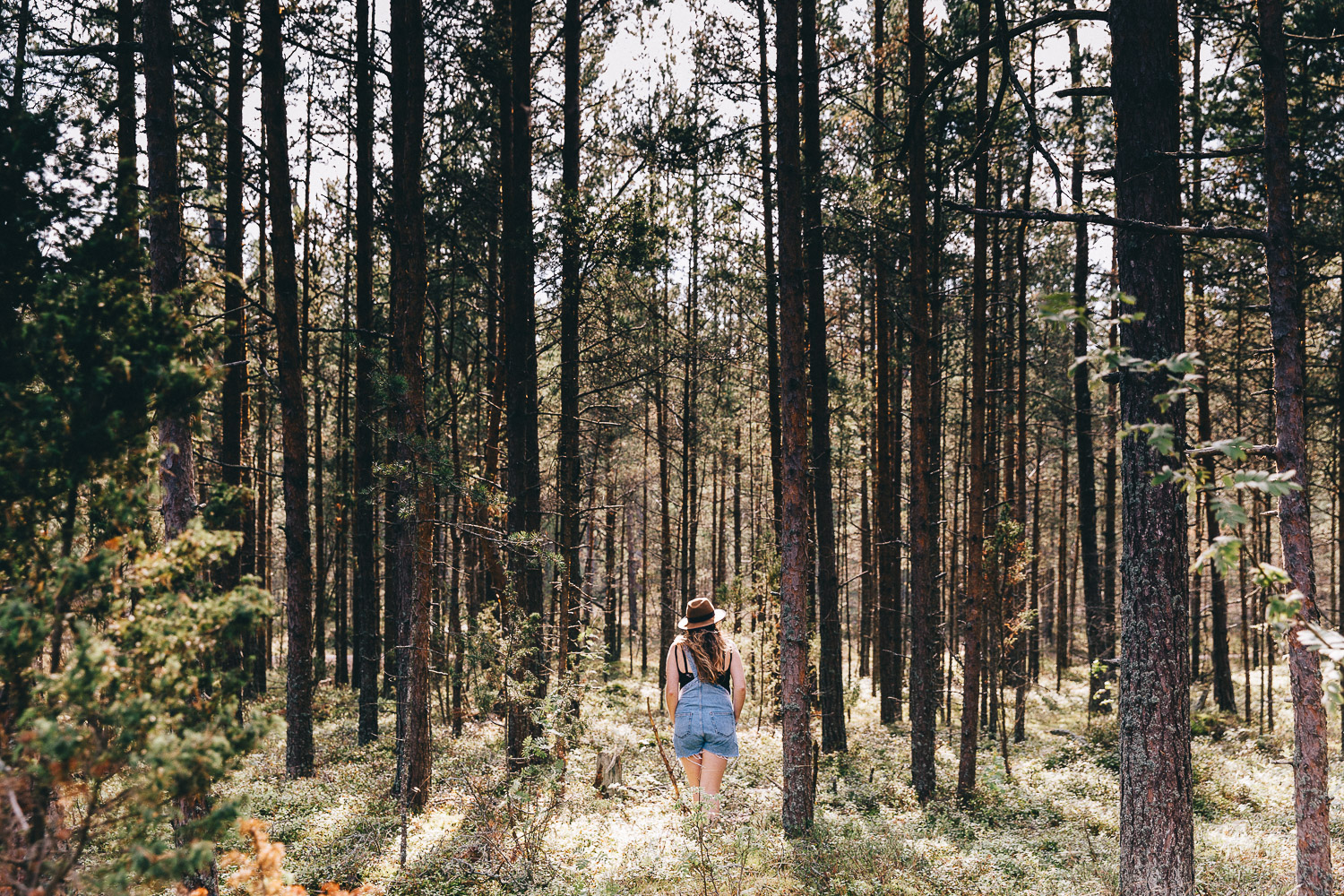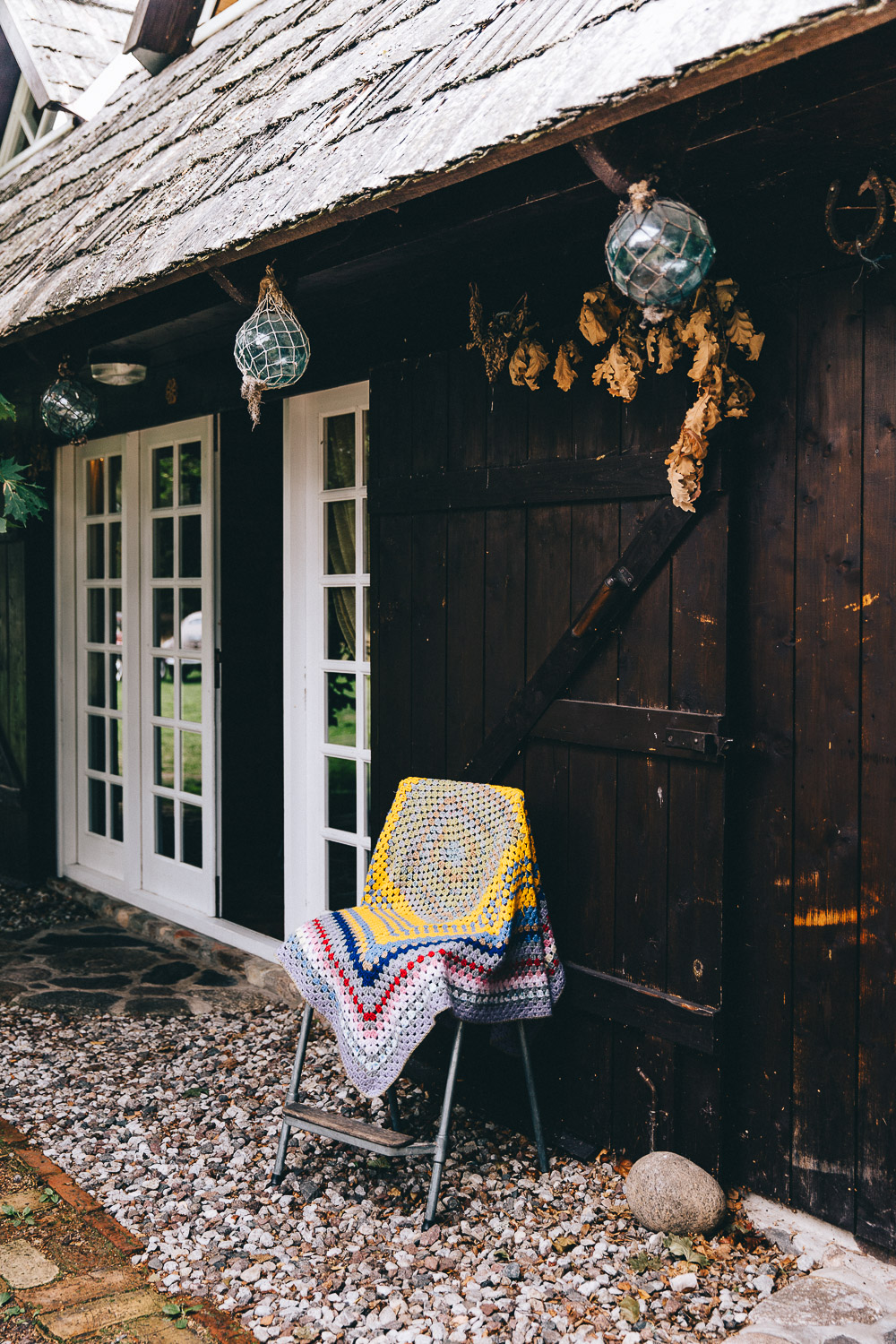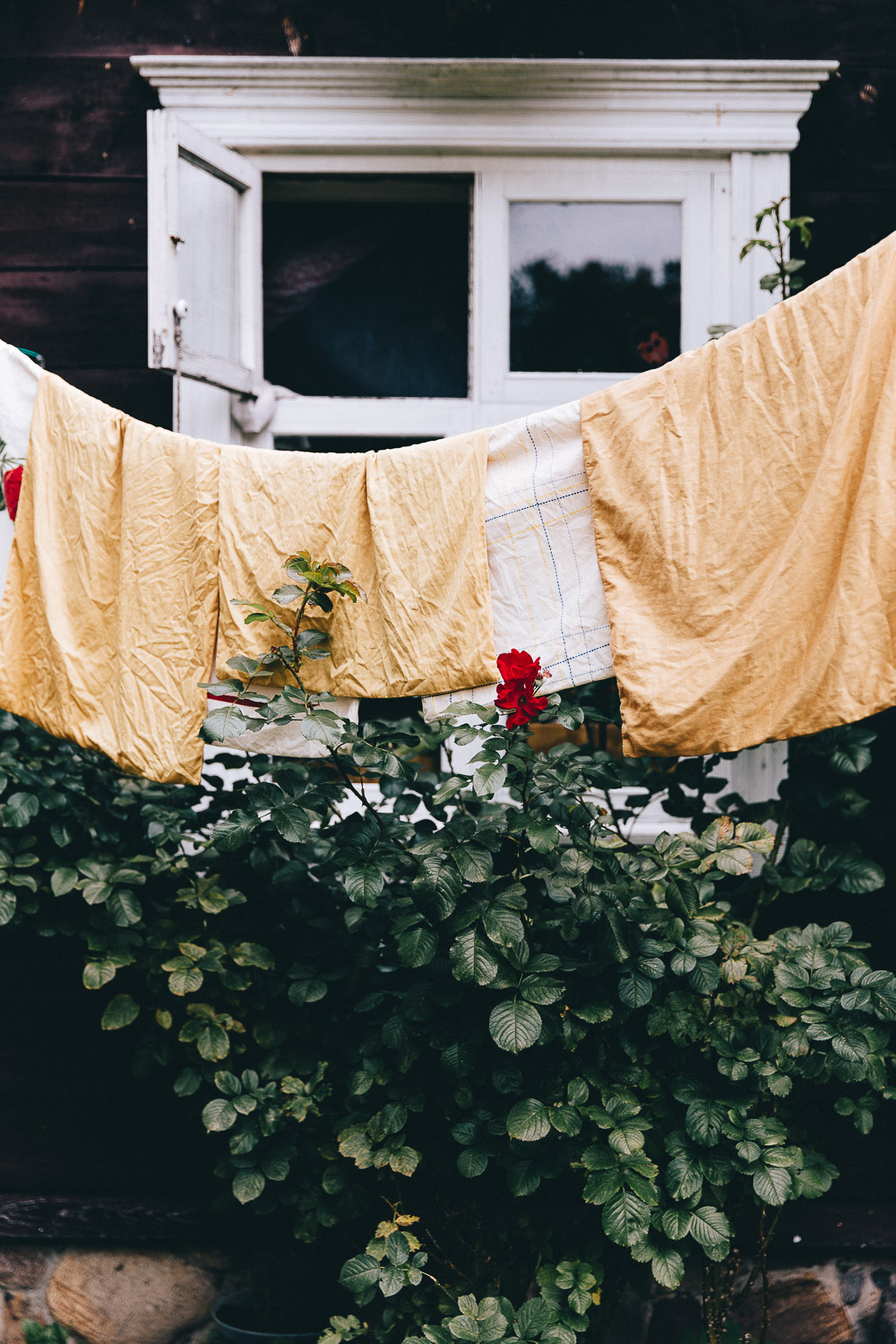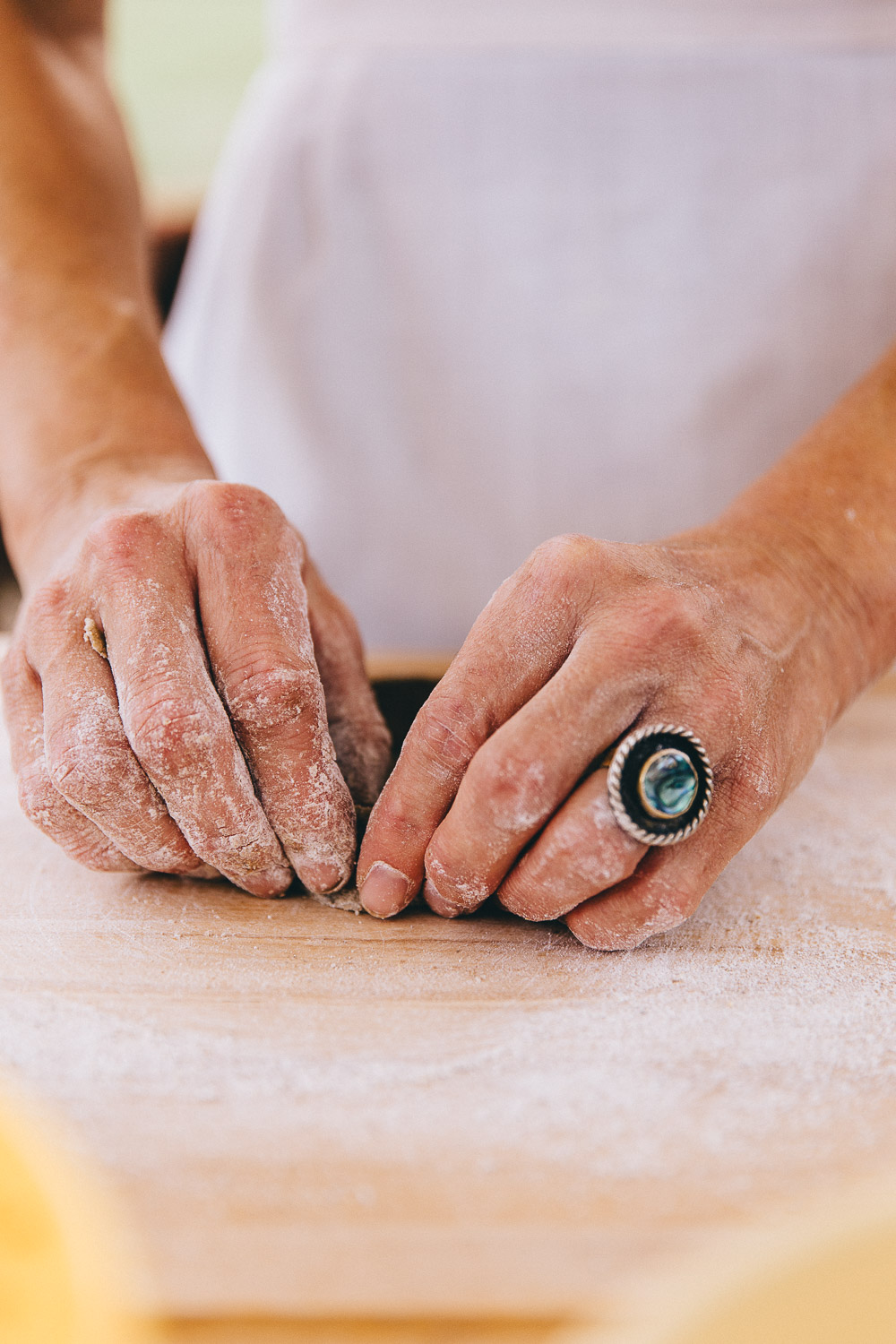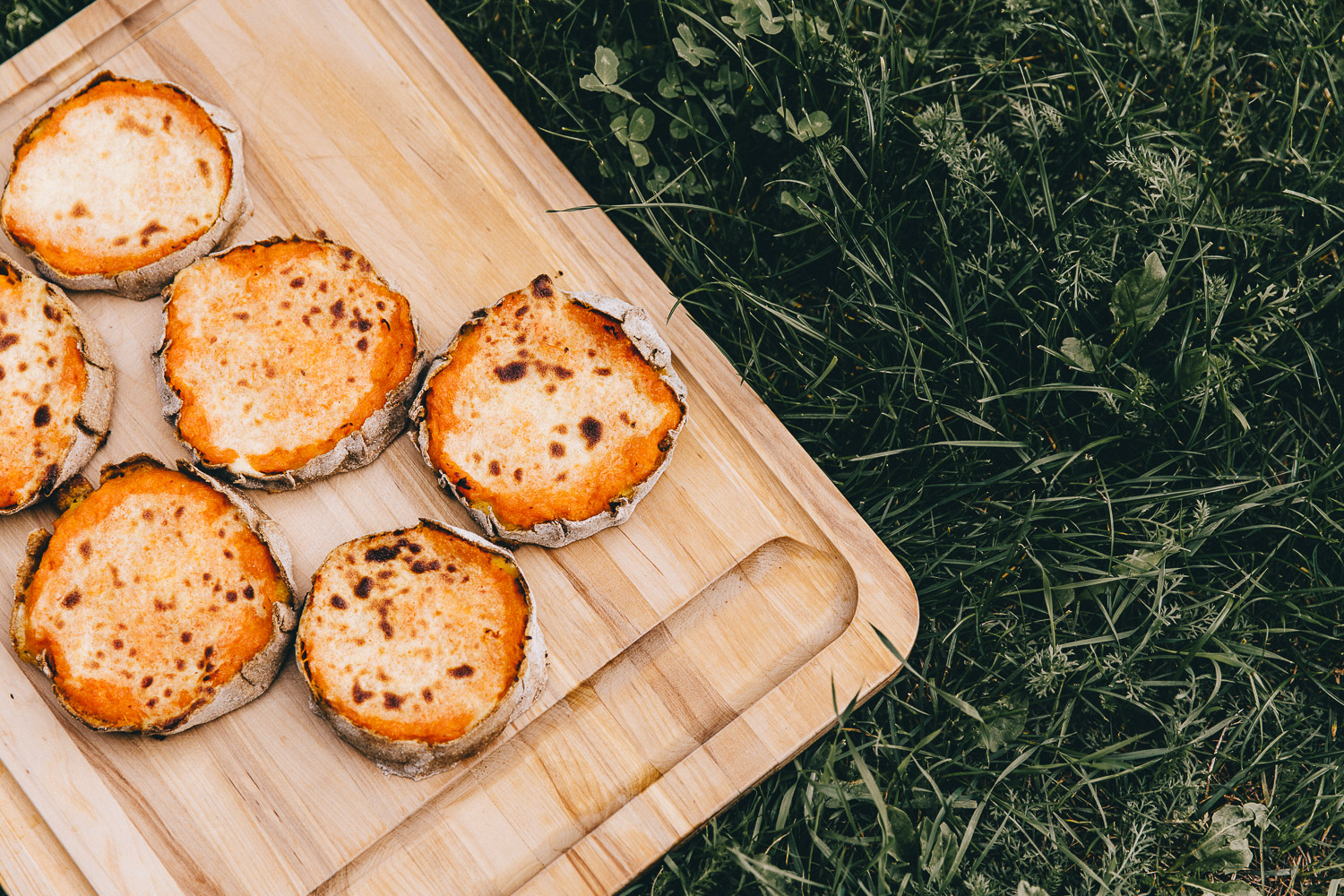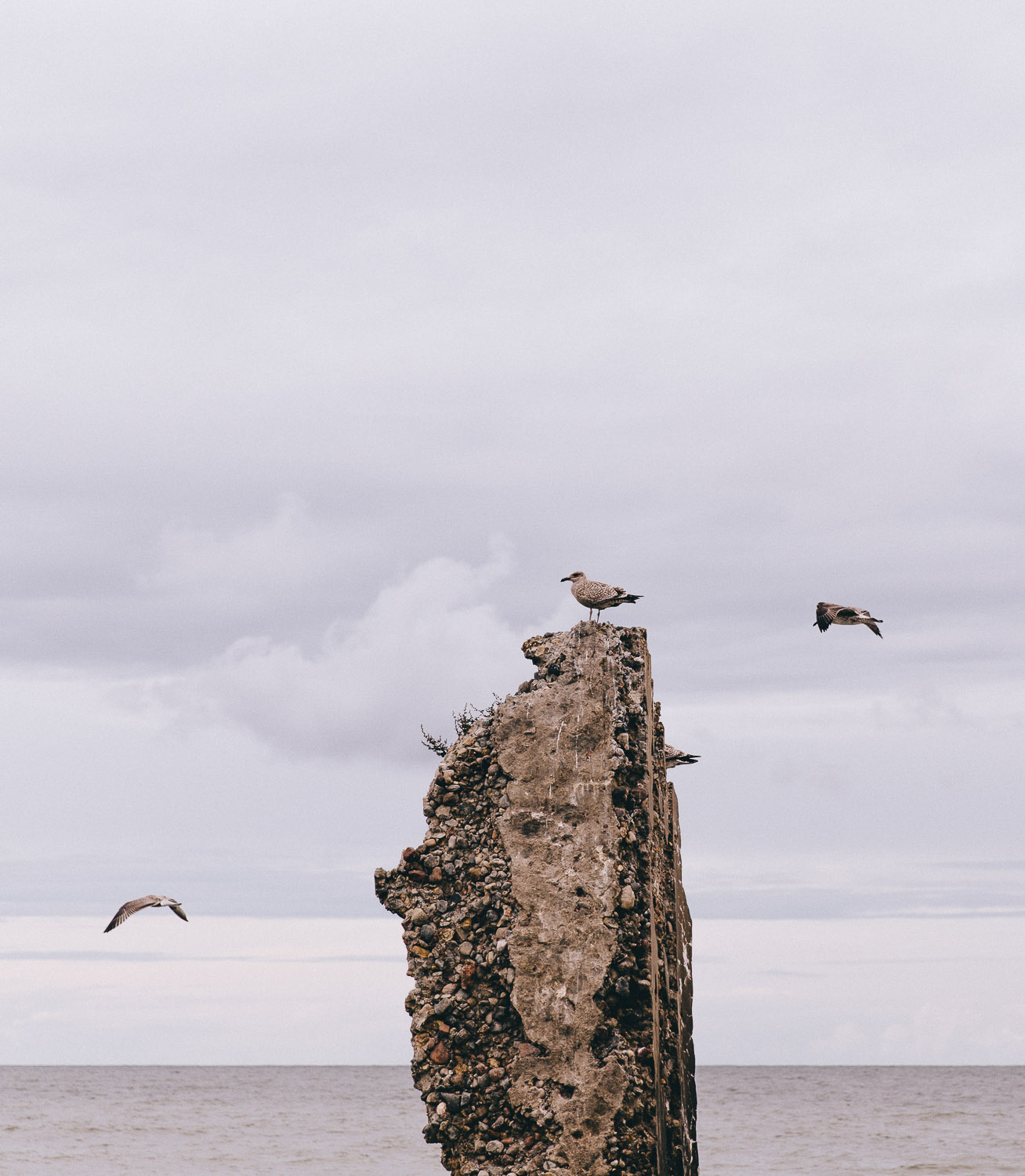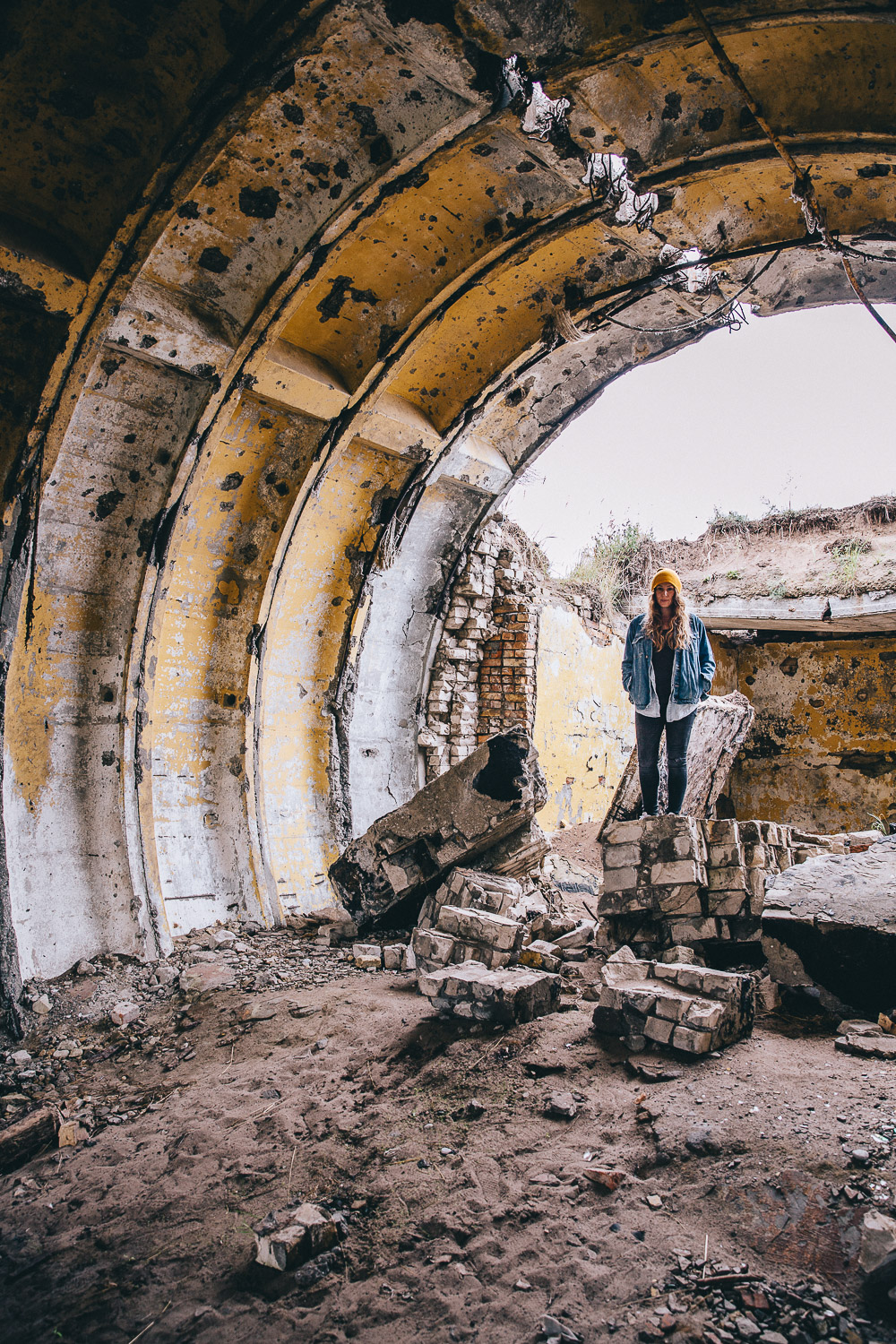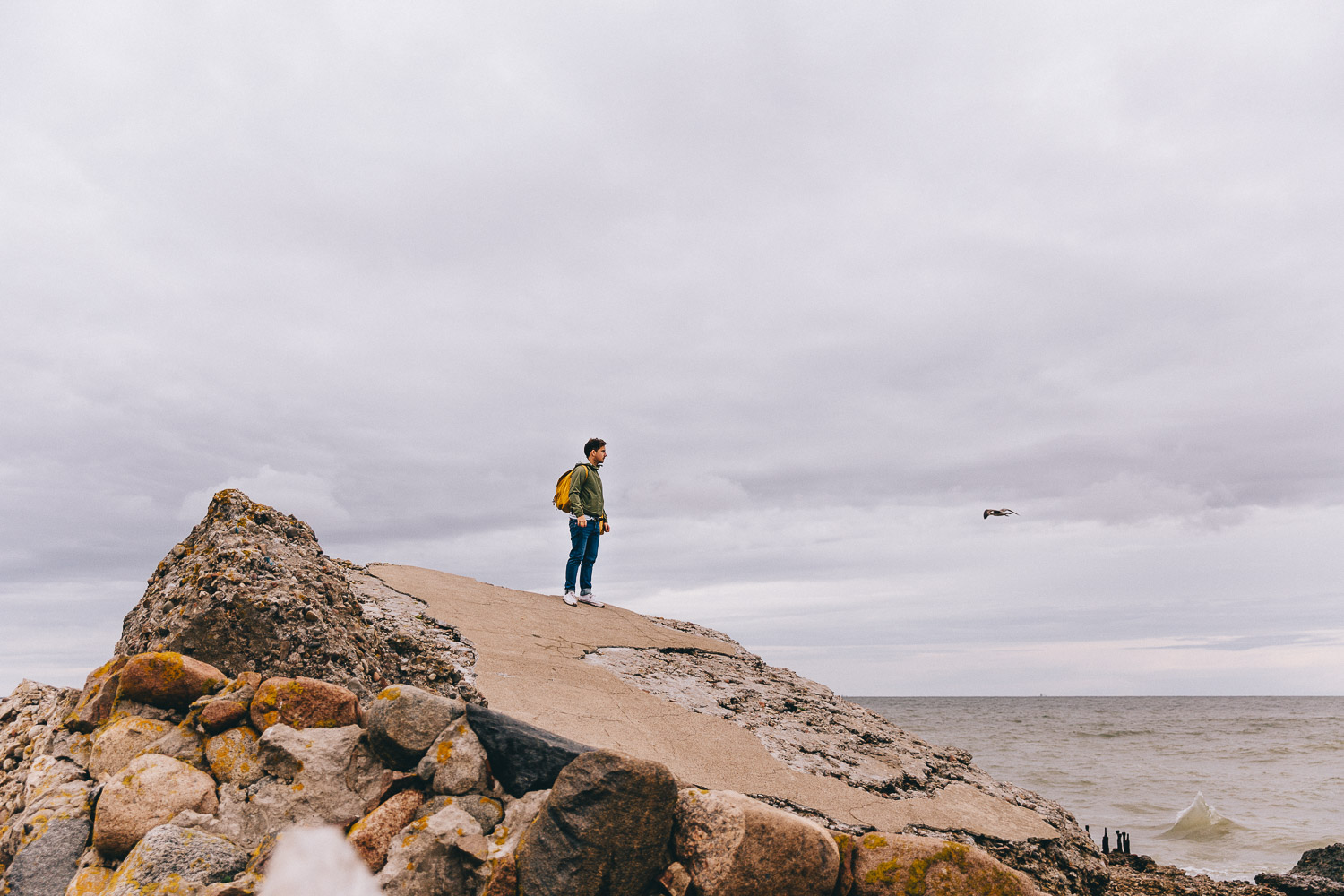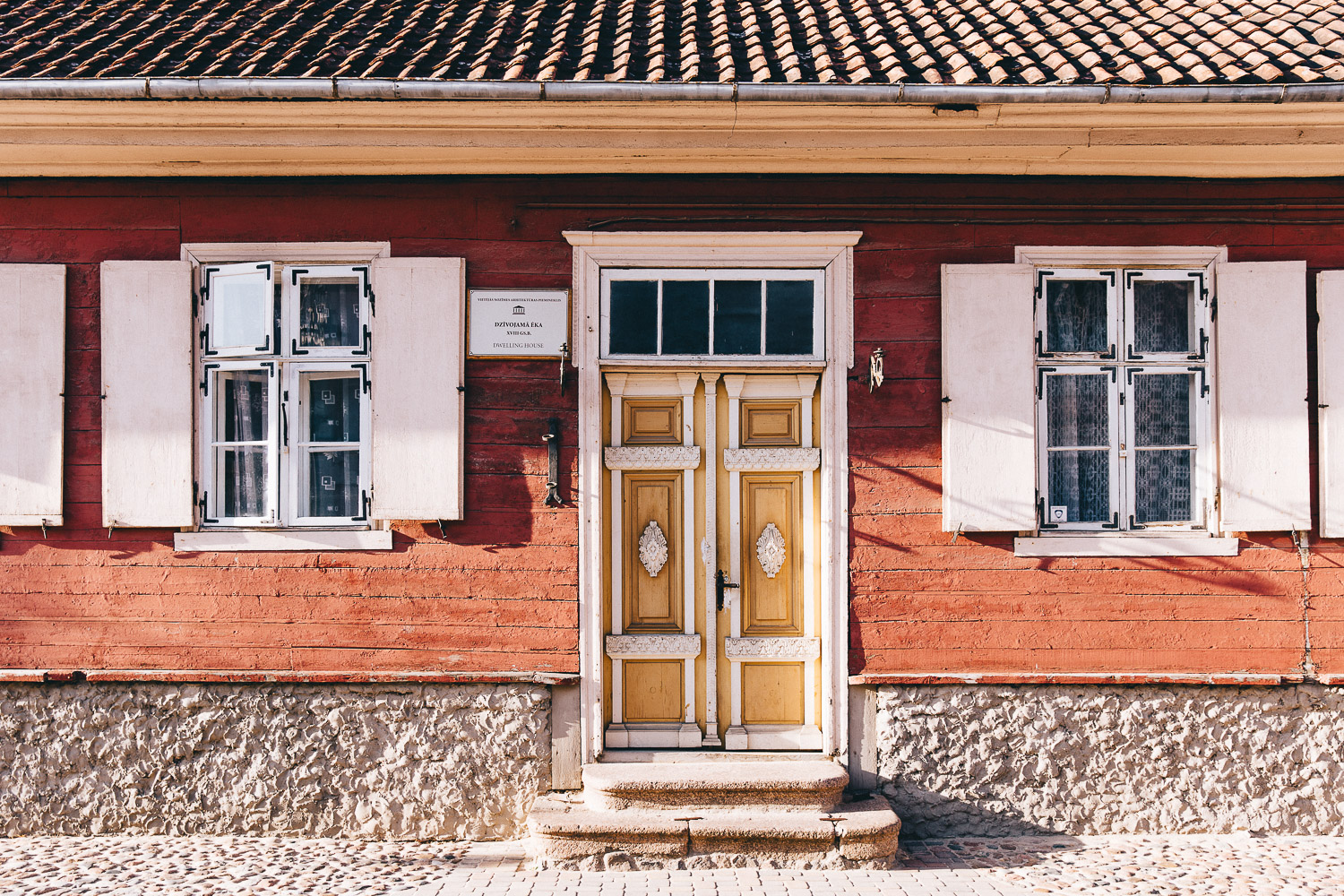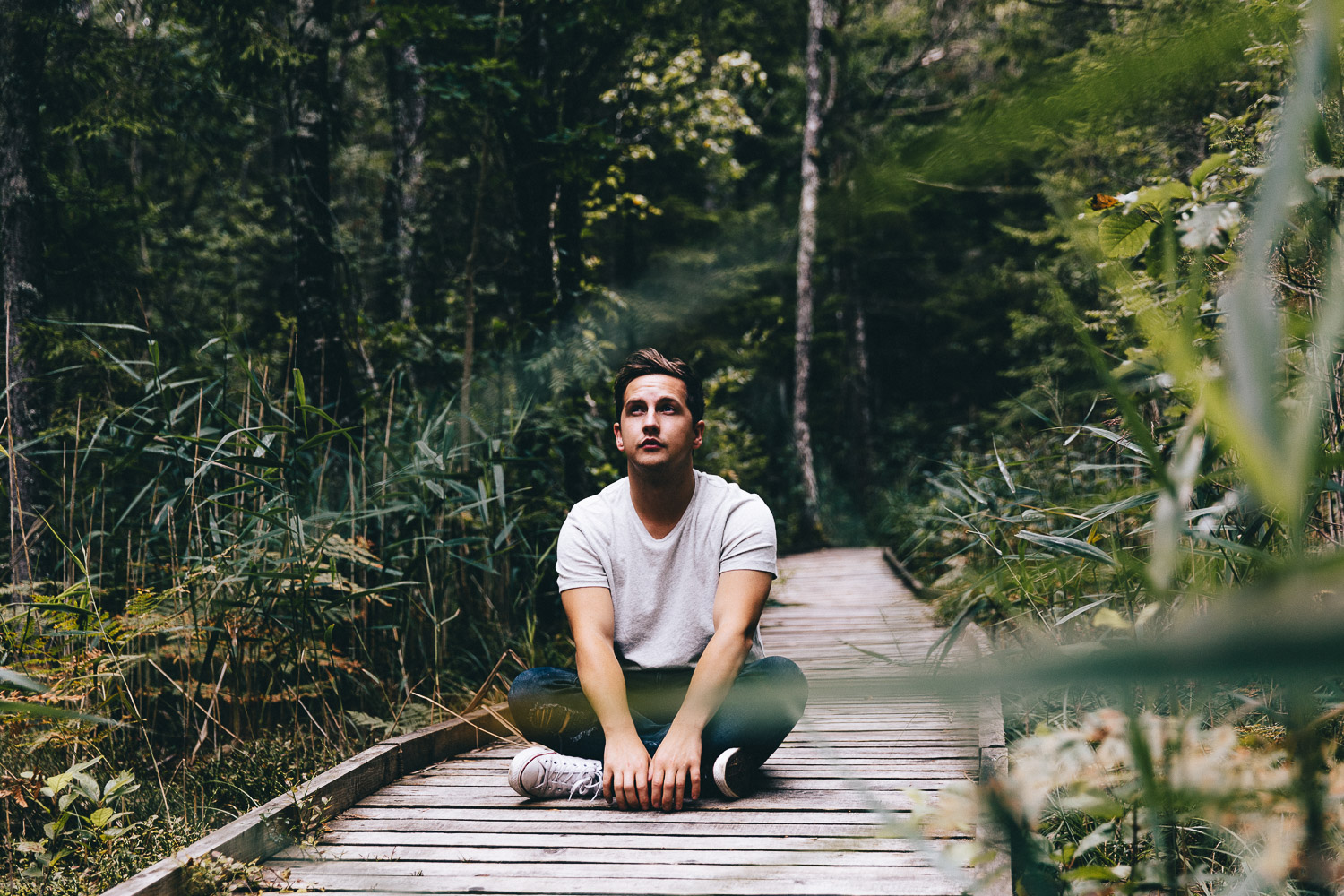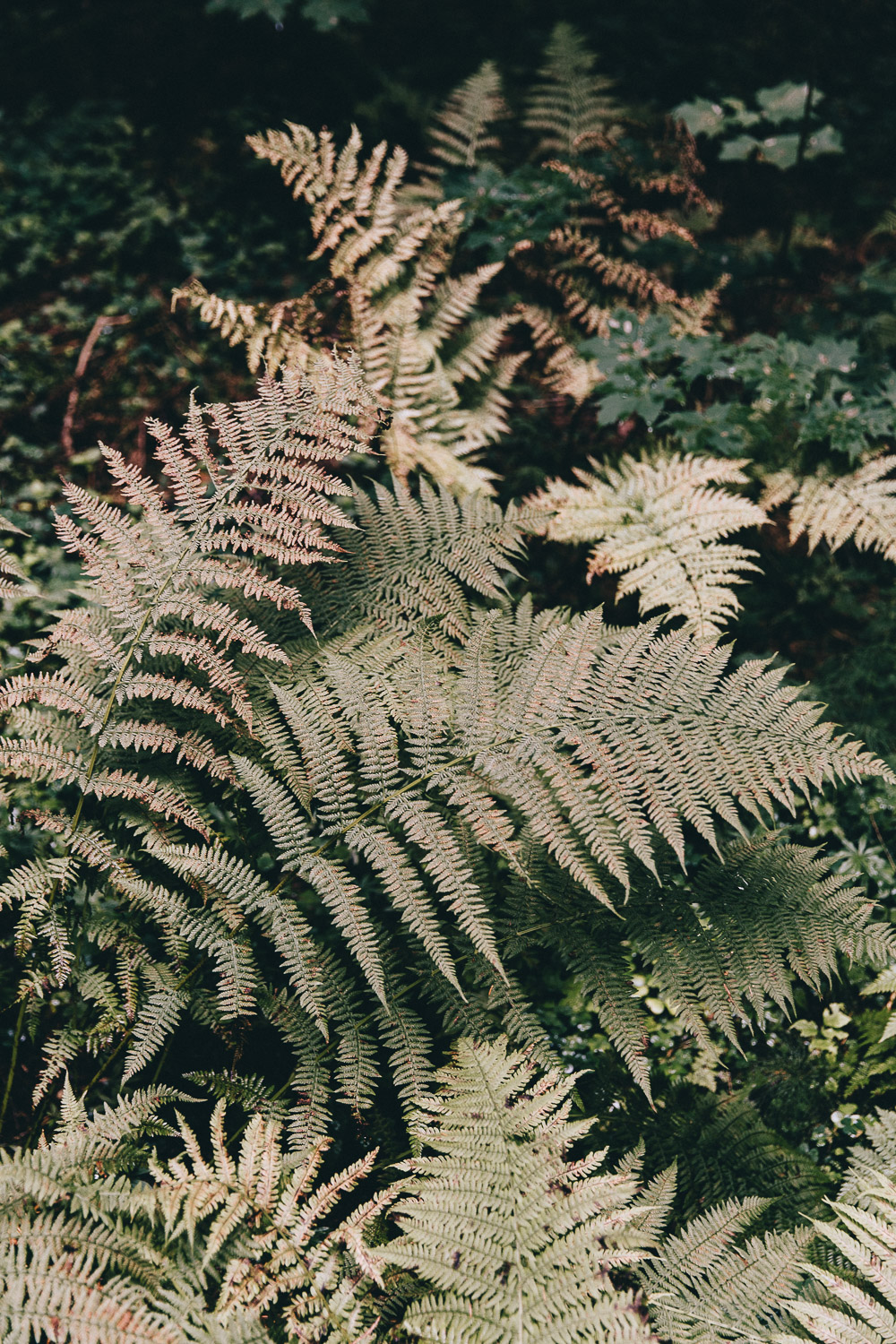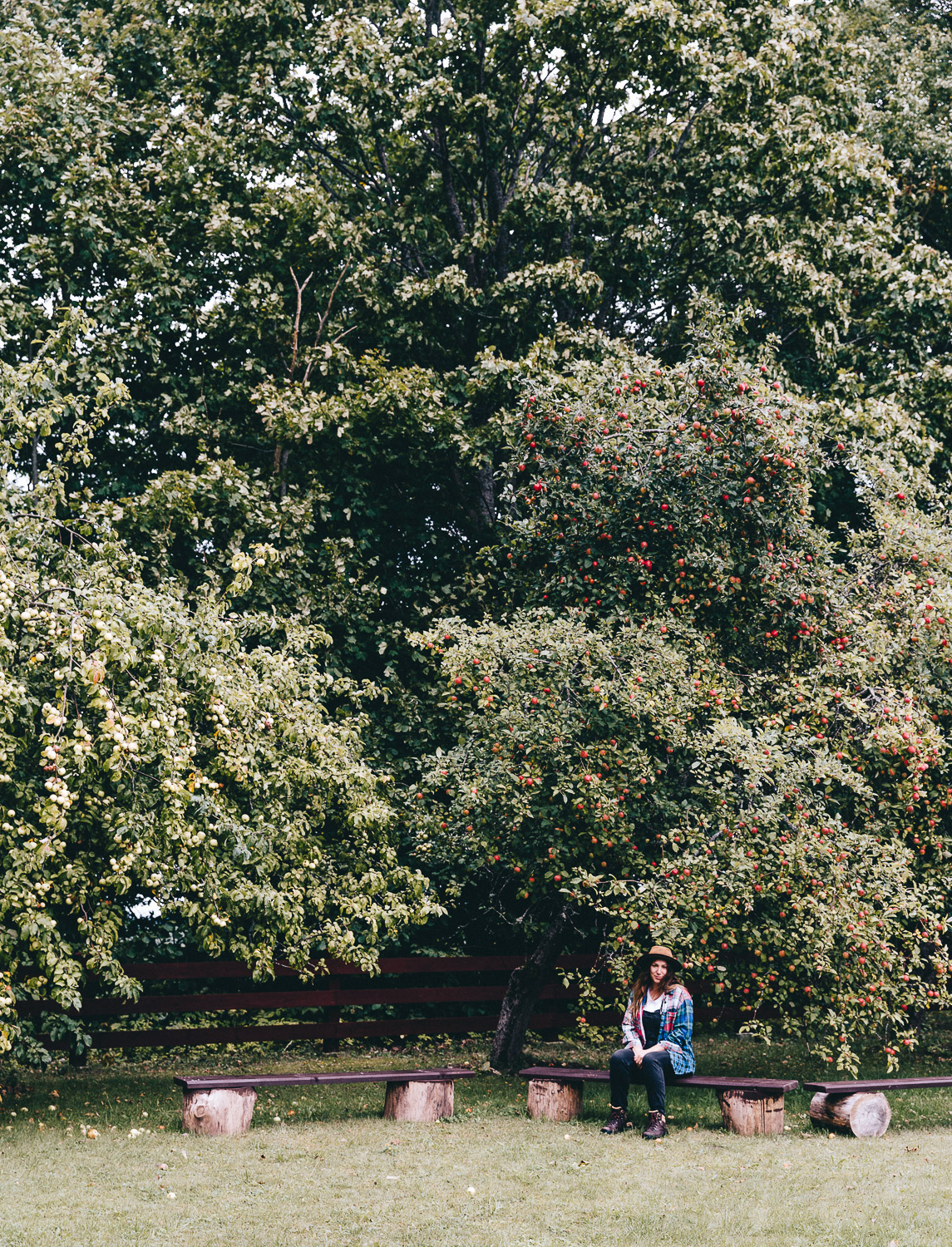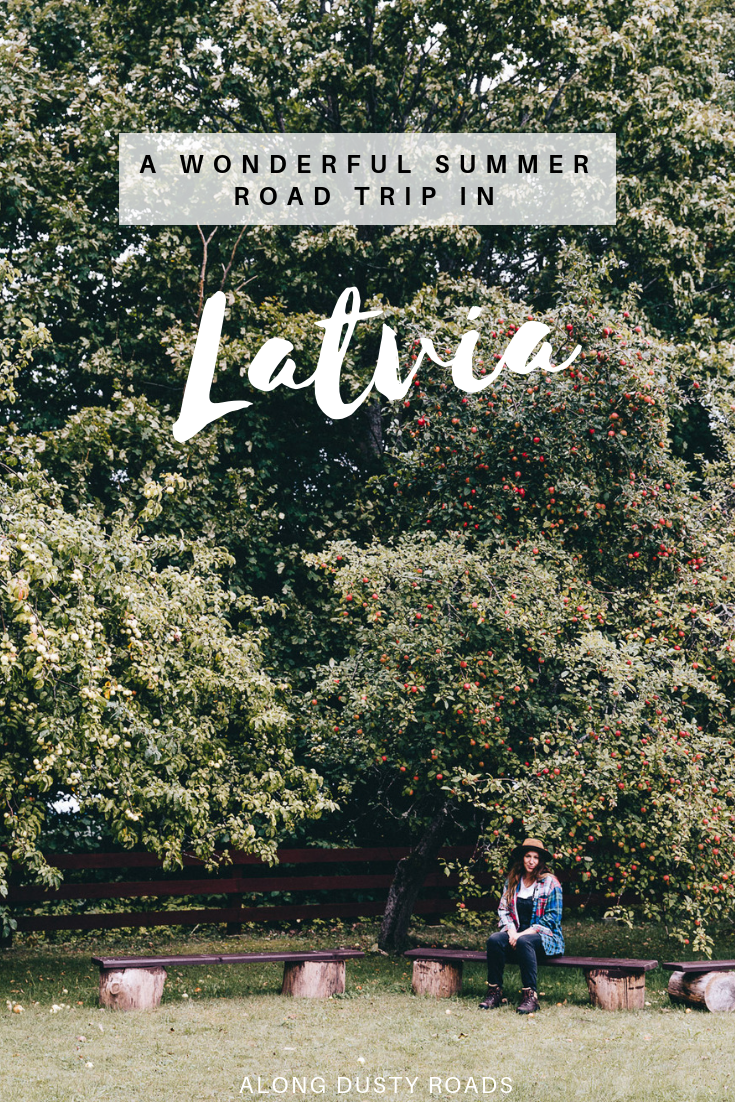“‘These are forest mushrooms,’ she softly remarks after biting into her pankūkas, the lunchtime speciality of the lakeside cabin restaurant.
’How can you tell?’
’Every Latvian can can tell,’ she says.
’And forest mushrooms are a good thing?’
’They’re a very good thing.’
She smiles, preparing to slice off another mouthful.”
The sun is shining as we eat our pancakes. Behind us, wasps are being lured to a sweet death in the ways of old with sticky purple berry juice in a glass jar. In front, on the shimmering water, a couple row their way towards romance in a wooden boat.
It’s the sixth day of our week-long road trip around western Latvia
In the afternoon, we will snake our way east to spend the night in Jurmala - a wealthy seaside resort town which feels at odds with the scenes which have lazily unfolded on the days since we left Riga in a little red rental car, filled with the essential ingredients of what we’ve come to associate in our mind with long summer days in Latvia. Throttling down pine-tree lined roads which hypnotise, waking in a repurposed boat at sunrise, spontaneous stops at wild beach nooks, getting lost down single-track sidetracks, short hikes through forest and swamp with only silent wilderness and wild horses for company, fireside chats to level out our bellies over-filled from too kind countryside Latvian hosts.
And, of course, those forest mushrooms.
The second-largest of the triptych of countries which form the Baltic states, Latvia goes under the radar of most European tourists save for the birdwatchers, the cyclists, some in the know Germans and, unfortunately, stag-do parties. Perhaps one reason is that many of us don’t really know very much about Latvia, or that this ‘nation of introverts’ are simply too shy to tell us what we’re missing.
Or maybe they like it that way.
There are, inevitably, two sides to the Latvian travel experience, and our last days of summer road trip route from Kuldiga (just a couple of hours drive from Riga airport) to the west and north coast, was crafted to ensure that we would experience the traditions of a proud nation of wooden houses in meadows and coastal settlements where smoked fish is sold on the side of the road, and not simply a concrete-lined Soviet safari.
We wanted to look upon the past before the past.
Dženeta (which sounds a lot like Janet) tells us that the apples are smaller this year. The European heatwave means they’re unlikely to be as sweet as usual, but she will collect them in the coming weeks and store them in her cellar for winter treats.
As she rolls out rye flour dough, she talks of the history of Kolka and the sea. Her family have lived at this homestead for generations, and now she welcomes as a guesthouse and campsite. Not too far from where we stand, the very northern tip of Latvia stabs into two bodies of water, creating a swirling, whirling current but Dženeta , in her apron, long skirt, and white head covering - similar to the garments Emily had to wear to enter a golden domed church a few days before - recalls times when inhabitants have been able to walk across the winter water to Kolka’s lighthouse. As we stand together in an idyllic summer garden setting, surrounded by flowers both wild and planned, it is surreal to imagine such icy epochs.
We are making sklandrausis, a traditional Latvian sweet pie which, judging by Džanetai’s reaction our question about her recipe, must most certainly not include cinnamon. Inside the hand pinched dough, we’ll instead add grated carrot and stodgy mashed potato from the neat arrangement of yellow bowls. It is one of the most curious desserts we have heard of - surely the main ingredients are best covered in gravy? - but a long-loved one in Latvia.
A few feet away, horses wander a patch of grass, the coastal soil underneath their hooves too full of sand to grow anything of note other than Džanetai’s flowers and weighed down apple and pear trees. It is also the reason why each beach we visit along the coast has fallen trees; the land built upon sand is being eaten away by the sea.
We taste our creations fresh from the oven. Washed down with freshly brewed herbal tea from orange cups, it turns out that sklandrausis are delicious.
Even without the cinnamon.
Making a dessert where vegetables are the main ingredients (plus a healthy dollop of sour cream and sugar) and asking Dženeta endless questions about countryside life and what tourism is now like here, we remember something we often tell ourselves back in the UK - insights into a culture and a country cannot solely be found in the city. Although most of us take weekend city breaks, or a road trip itinerary shaped by golden stars charting paths between and via urbanity, it is in the countryside where many traditions runs deeper and daily rhythms are shaped less by outside influence. In Latvia, where close close to 1 in 3 of its two million residents live in the capital city, it is important to remember that Riga is not all of Latvia.
With full bellies and thoughts turning towards how we must learn how to make tea from plants like Dženeta, we take the extras with us in the rental car, still warm in their brown paper wrapping.
Wherever we drive on the coast, sometimes mistakenly taking turnings which look like they lead to seaside roads but actually take us to bumpy trails through dense forest, there is usually a solitary car parked up on the grassy verges somewhere along the way.
Initially, we think that Latvians may suffer from the same tiny bladder issues as Andrew, with impromptu stops required in the middle of nowhere.
And then we notice the buckets.
Foraging for mushrooms and berries in summer, we learn, is almost a summer national sport. Secret family clusters are sacred and a closely guarded secret; if someone finds your favourite spot before you, plump with undisturbed fungi, the season will be one to forget.
Such scenes are at odds with abandoned Soviet city we choose to seek out amongst the trees in Irbene. Built to house the workers responsible for the massive satellite in the sand, and secret for decades until the fall, they lie rotting and derelict. Sights such as this are scattered across Latvia, relics of relatively recent history, and were once of hugely strategic importance; now they fulfill no real role aside from housing birds and forming a chunk of a curious foreign visitors’ time in Latvia.
Karosta Prison is perhaps the most notable example. Set in an old red-brick military detention centre, this museum-cum-hostel has become quite well-known amongst dark tourism enthusiasts as a place where ‘guests’ can spend the night receiving the ‘as realistic and intense as it’s possible to be without getting sued’ experience of being a Soviet prisoner for the day or night, including a bed in the cells. We aren’t at all tempted to do this, choosing instead to be shown around by Chris, an intelligent dreadlocked tour guide whose grandfather had to travel for two weeks on a train to his army station. The stories, as we expect, are harrowing but Chris paints a wonderful picture of why Latvia’s ice-free ports were so valued throughout the 20th century and why the section of town where Karosta is based has so many beautiful pre-Soviet buildings left to ruin.
As we prepare to leave, a shaven-headed behemoth in full military garb crosses our path. He is on his way to meet the ‘guests’ who have elected for the daytime experience of being a Soviet prisoner, meaning that, for their allotted time slot, he will have (almost) free rein to berate them. They have shown up late for their appointment, and his granite expression hints that this tardiness may just add an extra level of ‘enjoyment’ to their experience.
We congratulate Chris on the casting decision and breathe a sigh of relief that our bed that night is in an adorable traditional guesthouse and not a cell with no windows.
And yet, as each summer day unfolds on the open and empty roads, any Soviet-era voyeurism begins to feel at odds with the Latvia we are learning about with all our senses. Although the influence and structures are impossible to avoid, they begin to feel anachronistic, uncomfortable, imposed upon the flat green landscapes which we roam freely and happily. The December snow of our last visit, which tallies with British visions of the bloc in the East, has melted away to reveal a place where this perspective no longer feels like the right approach. As the berries have come into season and songbirds dance in the branches, our own Cold War view has thawed completely and the forest and the sea is reclaiming the concrete.
Indeed, the contrast between our foraging in Latvian forests to gawp at satellites or secret structures which the trees and time are slowly consuming, and locals spending blissful summer afternoons instead foraging for boletus and chanterelles in the undergrowth, is not lost on us.
And, from this trip, we know which aspect affected us most. Latvia now, in our minds at least, is a place of nature, lakes, tea towels over dishes of food, and wild beaches. Places like Kuldīga, a gem of a chocolate box town symbolic of Latvia’s past before the past where we sat on a wooden jetty by the Venta river, basking under the morning sun, and not having any desire to leave or change a thing.
We now want to pick mushrooms too.
When we visited Latvia that first time, the smell of cinnamon and Christmas was in the air. It felt like we were not just the only people exploring, but the only souls within ten square miles.
Summer, we assumed, would be different.
However, on five of the six nights on the coast we fell asleep in ashen silence and awoke to either the sound of the ocean, the birds, or soundless serenity. We would walk on beaches and cast the first footsteps of the day, and perhaps the week. We would stand alone in the forest and be the boots upon the wooden nature trails.
There were couples and families scattered out along the way of course, but for the most part until Jurmala, it was just us and the unexpected.
With overtourism being a growing and important issue for many, Latvia feels like the antidote. Introverts after all need their space, and in a country as disparately populated as this, there’s plenty of it to go around.
On our last afternoon, we pull off right and find ourselves on a dusty road by the entrance to Lake Kanieris. With golden hour lighting up the swamp reeds, we stopped to share a cold bottle of beer at the roadside. The coastal bluster which has been a feature on the wild beaches is now a faint breeze in which the dust swirls when a solitary car speeds past. The sun is dying for the day but its heat has stuck around. In the water, there is lanky bird (probably a stork) peering at his own reflection.
It’s just us.
We are the only ones here and life’s small pleasures are all around in this moment.
We smile.
On our second afternoon in Latvia, after walking the concrete Northern Forts of Tsar Alexander III which photogenically litter the sea outside Liepaja like a giant has discarded his favourite skimming stones, a priest had crossed our paths in Liepaja; our guide told us that those of the Orthodox Church believe that when this happens, you are blessed for a week.
It certainly felt that way.
